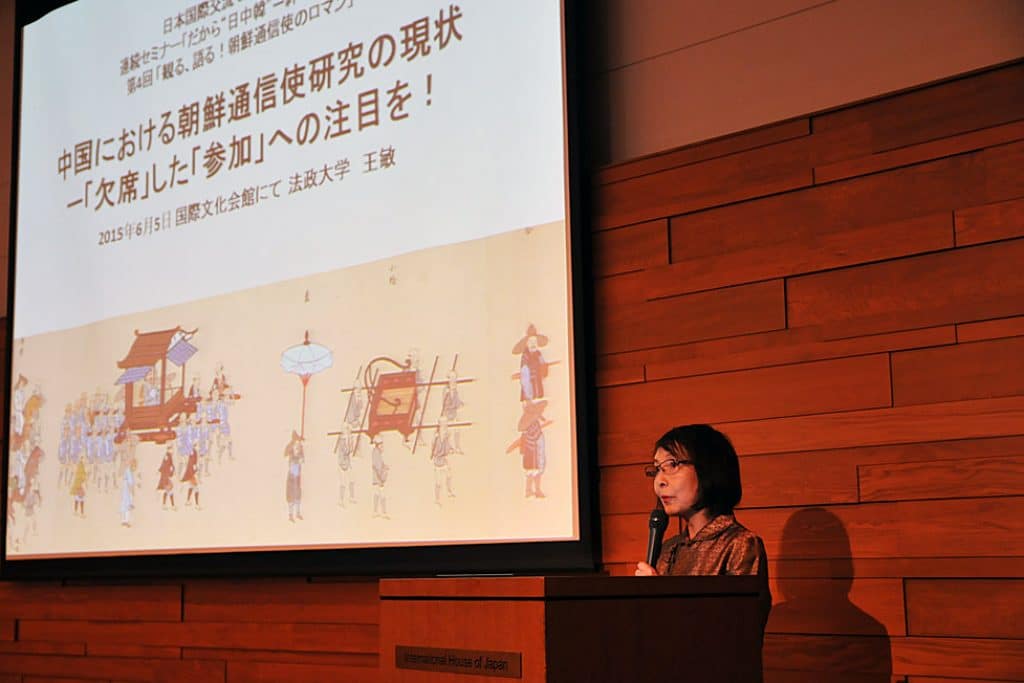With Japan-Korea diplomatic relations being a hot topic in recent years, more than 150 people gathered at JCIE’s 4th “Rediscovering Common Bonds among Japan, China, and Korea” seminar, titled “Screening and Discussion: Learning from Pre-modern Korean Diplomacy,” to learn what history can teach us about promoting peace between these two neighbors.
The seminar featured a screening of a documentary by the late scholar Shin Gisu that traces the history of the Joseon diplomatic missions to Japan carried in the Edo period (1607–1811). After relations deteriorated due to the invasion of Korea by Hideyoshi in the late 1500s, the missions were relaunched in the early 1607 with broader participation and objectives—they brought not only messages and gifts from Korean sovereigns but also delegations of hundreds of scholars, writers, doctors, and others. These delegations also had a strong cultural impact, as seen in the fact that the missions are depicted in artwork and kabuki plays from that time period. The film was introduced by Shin’s daughter, Shin Rika, who spoke about the significance of the film being revisited in the context of contemporary Japan-Korea relations.
Following the film, noted Korean history scholar Gang Jae Eon spoke about the various events involved in the Joseon diplomatic missions to Japan—including how Ieyasu was able to repair relations with Korea following Hideyoshi’s invasion, and how the Tsushima domain faked official papers in order to smooth out diplomatic relations.
Wang Ming, professor at Hosei University, offered a Chinese perspective. She noted the strong Chinese influence in the ceremonies and attire, the exchange of poetry between the men of culture from the two nations, and other elements of the missions, and called for greater research on the missions.
Akinari Takehisa, the mayor of Setouchi, described how the legacy of the missions, which travelled through the local village of Ushimado in his city, is maintained there through a traditional dance and yearly reenactment of the event by local residents.
Finally, Yoichi Sai, a famous Japanese filmmaker who has studied modern Korean film history, shared his thoughts on the importance of the film that was shown, noting that the missions speak to the importance of people-to-people exchange and calling on the younger generations in each country to go even beyond the diplomacy of the Joseon missions.
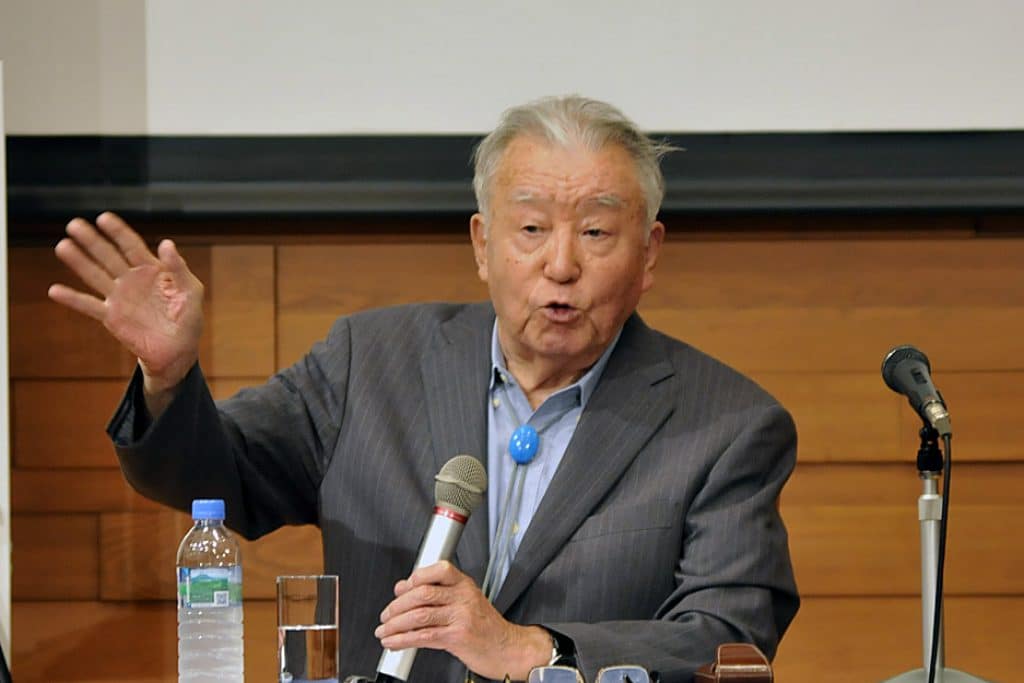
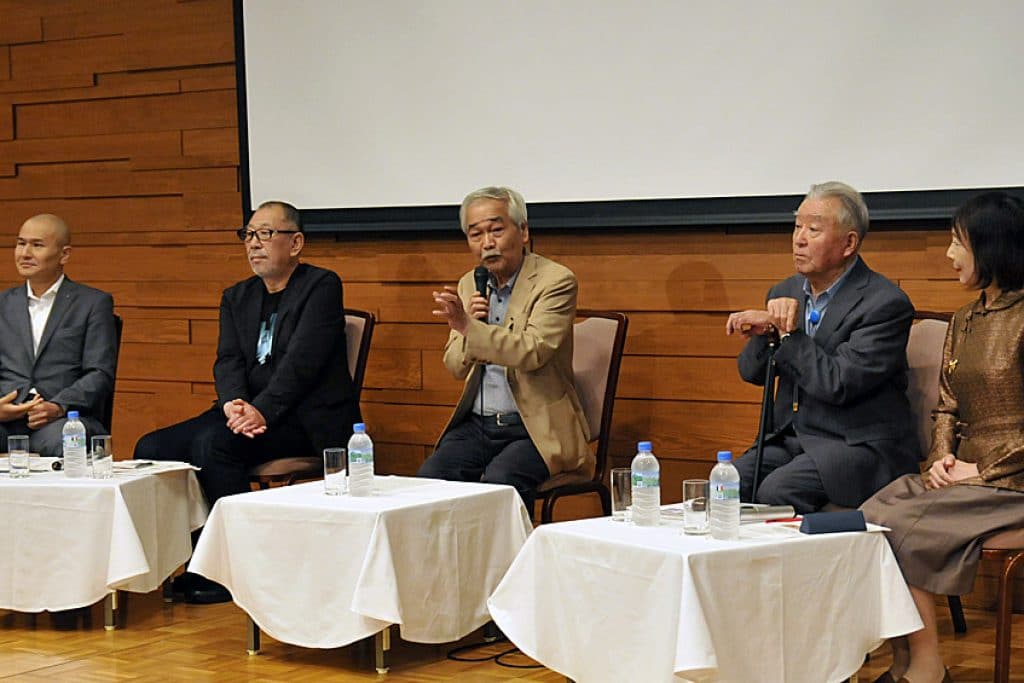
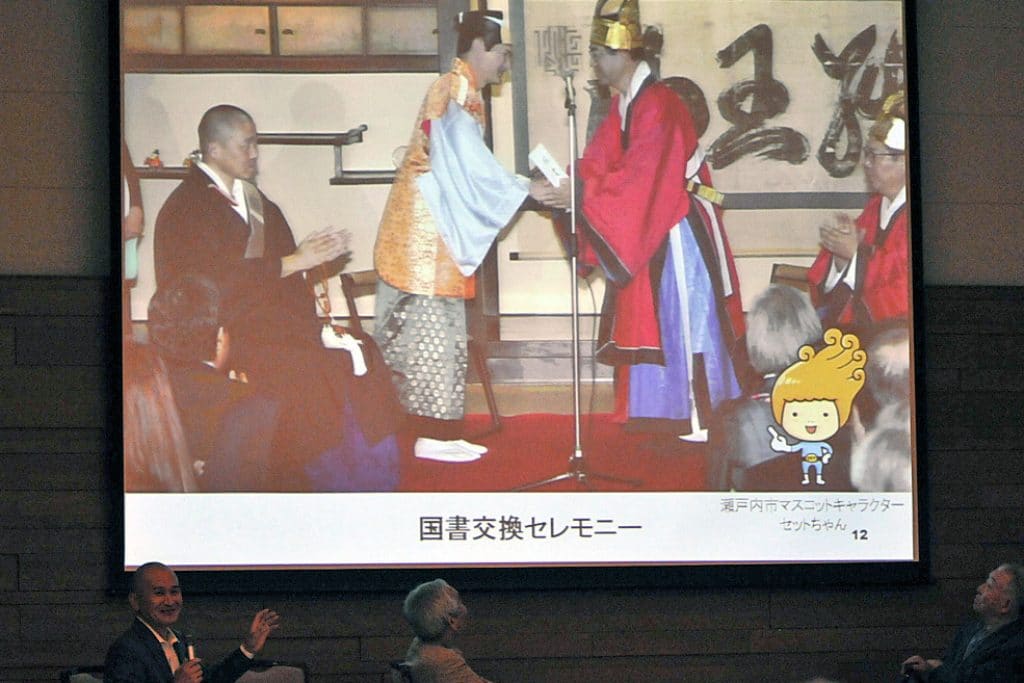
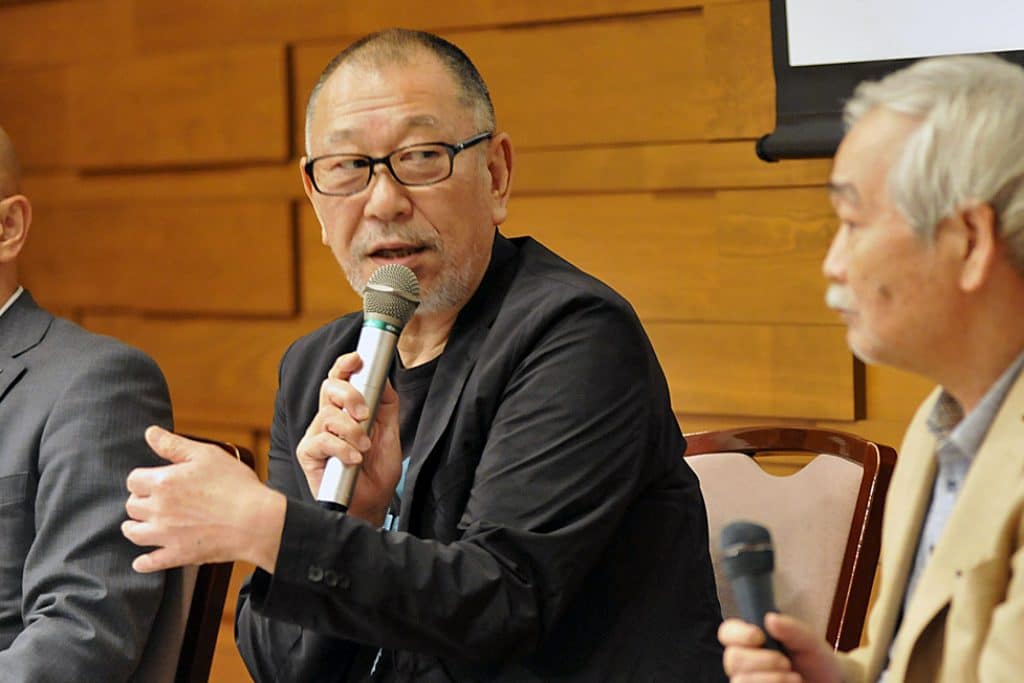
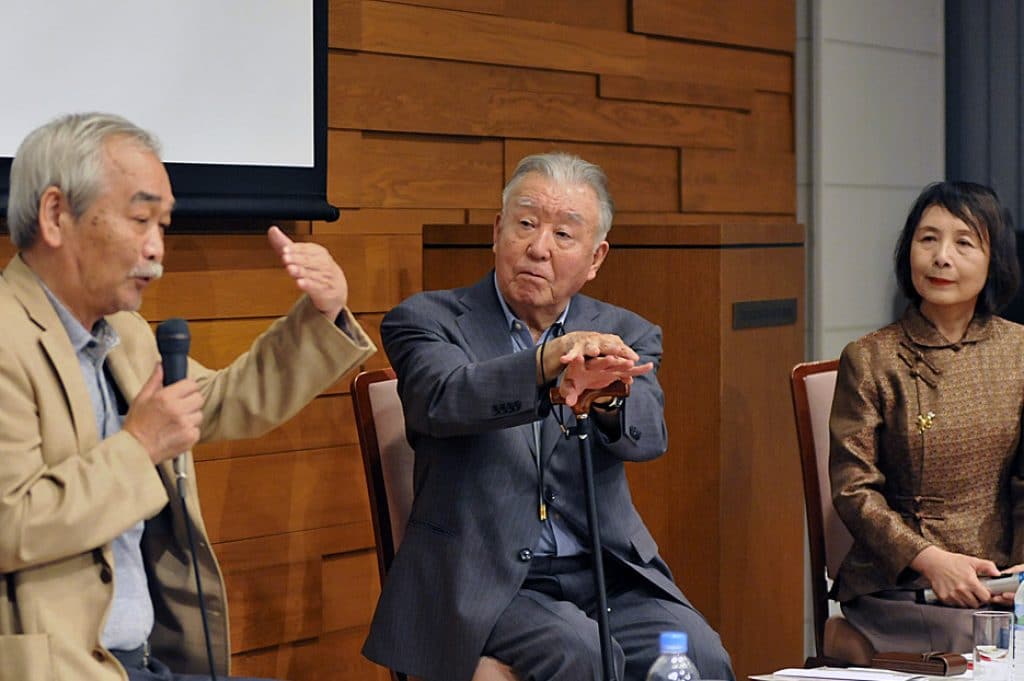
March 16, 2015—Interacting Cultures
January 16, 2015—A Fierce and Mutually Beneficial Rivalry
November 25, 2014—Opening up Future Possibilities through Stage and Video

